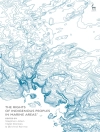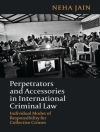This volume contains several articles on the topic ‘Detention in non-international armed conflict’, including the Copenhagen Process, and moreover features contributions on autonomous weapons systems, Apartheid and the second Turkel Report. It also contains an elaborate Year in Review and a special section on the high-level Boundaries of the Battlefield symposium, including a conference report and several in-depth reflections on various other aspects of the symposium. The Yearbook of International Humanitarian Law is the world’s only annual publication devoted to the study of the laws governing armed conflict. It provides a truly international forum for high-quality, peer-reviewed academic articles focusing on this crucial branch of international law. Distinguished by contemporary relevance, the Yearbook of International Humanitarian Law bridges the gap between theory and practice and serves as a useful reference tool for scholars, practitioners, military personnel, civil servants, diplomats, human rights workers and students.
Table des matières
The Copenhagen Process: Principles and Guidelines.- Beyond Process: The Material Framework for Detention and the particularities of Non-International Armed Conflict.- A Dialogue: Ethics, Law, and the Question of Detention in Non-International Armed Conflicts.- Autonomous Attack – Opportunity or Spectre?.- The Practices of Apartheid as a War Crime: A Critical Analysis.- A Critical Discussion of the Second Turkel Report and How it Engages with the Duty to Investigate under International Law.- Year in Review 2013.- Boundaries of the Battlefield: A Critical Look at the Legal Paradigms and Rules in Countering Terrorism.- Some Thoughts on the Relationship between International Humanitarian Law and International Human Rights Law: A Plea for Mutual Respect and a Common-Sense Approach.- Counter-Terrorism and International Law since 9/11, Including in the EU-US Context.- Debates and Dichotomies: Exploring the Presumptions Underlying Contentions about the Geography of Armed Conflict.- Crossing Borders to Target Al-Qaeda and Its Affiliates: Defining Networks as Organized Armed Groups in Non-International Armed Conflicts.












